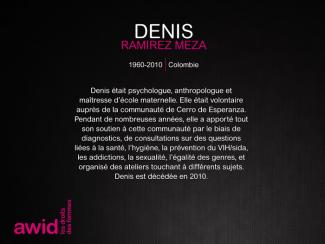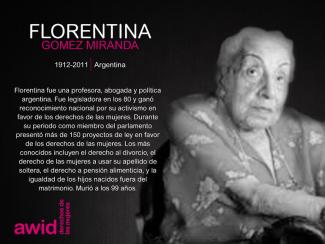Las entrevistas generan información en profundidad que no puedes obtener fácilmente de la encuesta. Mientras que la encuesta se centra sobre todo en información cuantificable y preguntas cerradas, las entrevistas son el espacio para las opiniones expertas de activistas y donantes, así como para las preguntas abiertas que pueden poner en contexto los resultados de la encuesta.
En esta sección
Consejos generales
1. Antes de realizar las entrevistas
Envía una nota conceptual a las personas que vas a entrevistar, explicando tus objetivos para la entrevista y para la investigación en general, así como una lista de preguntas.
Esto les permitirá prepararse para responder a las preguntas más complicadas y buscar información que tal vez no tengan a mano sin previo aviso.
2. Durante las entrevistas
- Puedes realizar las entrevistas mientras tienes la encuesta abierta para recibir respuestas, como forma de ahorrar tiempo.
- Trata de que las entrevistas sean lo más consistentes posible entre sí para facilitar un análisis sistemático de los resultados. Para esto, debes formular siempre las mismas preguntas. Cuando codifiques las respuestas, podrás descubrir tendencias ocultas.
- Las entrevistas también pueden ser útiles para aportarle más contenido a algunos de los resultados de la encuesta.
No bases las preguntas en supuestos acerca de lo que saben las personas a las que entrevistas. Por el contrario, averigua primero qué saben, porque eso también te aportará información.
- NO: «Considerando las tendencias actuales en el financiamiento en Suiza, ¿podrías identificar oportunidades de colaboración?». Esta pregunta da por sentado que la persona entrevistada conoce y evalúa las tendencias en el financiamiento en la misma medida que tú.
- SÍ: Pregunta primero «¿Qué piensas de las tendencias actuales del financiamiento en Suiza?», y luego «¿Conoces alguna oportunidad de colaboración?». Esto te revela lo que la persona sabe, y te aporta información ya desde la primera pregunta.
Volver al comienzo
Entrevistas especializadas
1. Entrevistas con donantes
Las entrevistas con donantes te permitirán forjar vínculos más profundos con ellxs, lo que te será útil cuando hagas incidencia una vez concluida la investigación. También te ayudarán a conocer mejor los procesos de toma de decisiones de las financiadoras.
Preguntas sugeridas para las entrevistas con donantes:
- ¿Cuáles son sus prioridades para el para el financiamiento? ¿Por qué y cómo decidieron esas prioridades? Por ejemplo: ¿por qué optaron por financiar proyectos y no dar apoyo organizacional, o viceversa?
- ¿Qué monto asignan cada año a impulsar los derechos humanos de las mujeres? Esta respuesta le dará mayor confiabilidad a la información general que consigas.
- ¿Perciben alguna tendencia en el financiamiento? ¿Cómo creen que se originó y a qué dinámica política responde?
- ¿Cuál es su teoría del cambio social y qué impacto tiene sobre sus vínculos con las organizaciones por los derechos de las mujeres?
Ver ejemplos de entrevistas con donantes
2. Entrevistas con organizaciones y activistas por los derechos de las mujeres
Las entrevistas con organizaciones y activistas por los derechos de las mujeres te ayudarán a conocer mejor las realidades sobre el terreno. También te permitirán profundizar tus vínculos con ellas y luego tal vez integrarlas al trabajo de incidencia, sobre todo para alentar la colaboración entre donantes y activistas.
Temas que sugerimos abordar durante las entrevistas con organizaciones y activistas por los derechos de las mujeres:
- Tendencias a largo plazo en cuanto a prioridades para el financiamiento que perciben las organizaciones de mujeres y su impacto.
- Ejemplos exitosos de estrategias conjuntas de movilización de recursos por parte de feministas, que ayuden a construir movimientos fuertes y complementarios.
- Sus argumentos acerca de por qué es importante apoyar a las organizaciones de mujeres y sus procesos organizativos.
- Cómo entienden los diferentes actores el proceso de cambio social y su rol en cuanto a impulsar/alcanzar la igualdad de género y los derechos de las mujeres.
Ver ejemplos de entrevistas con organizaciones y activistas por los derechos de las mujeres
Volver al comienzo
Resultados preliminares
Te recomendamos analizar resultados preliminares durante toda la investigación WITM. Presentar los resultados preliminares te da la oportunidad de realizar más entrevistas y escuchar opiniones sobre el proceso de investigación y los resultados iniciales. Esas opiniones las puedes incorporar a la investigación en su formato final.
AWID organiza «reuniones de WITM» durante las que comparte los resultados preliminares de la encuesta y las entrevistas. En estas reuniones, activistas, organizaciones por los derechos de las mujeres y donantes pueden debatir y discutir los resultados, esclarecer el contexto, sentir la investigación como propia y hacer aportes para la versión final de la investigación.
Por ejemplo, en la Cumbre Mundial de la IFP sobre Filantropía Indígena (en inglés), se utilizó el Centro de Movilización de Recursos por los Derechos de las Mujeres Indígenas como espacio para presentar los resultados preliminares.
Ver la presentación de esa reunión (en inglés)
Volver al comienzo
Paso previo
4. Recoge la información y analízala
Paso siguiente
6. Realiza una investigación secundaria










